Enhance Quality and Efficiency of Your Systems with Embention
Embention is a pioneer in the application of aviation industry quality standards to autonomous vehicles. Following standards such as DO178C, DO254, STANAG or ISO, Embention is a leader in the development of autopilots for certification of eVTOL and UAVs.
We have been working since 2007 in the development of critical systems for fixed wing, helicopters, multirotors, hybrid VTOL systems, ships, automobiles, paragliders, eVTOL, UAM.
Enhance Quality and Efficiency of Your Systems with Embention
Embention is a pioneer in the application of aviation industry quality standards to autonomous vehicles. Following standards such as DO178C, DO254, STANAG or ISO, Embention is a leader in the development of autopilots for certification of eVTOL and UAVs.
We have been working since 2007 in the development of critical systems for fixed wing, helicopters, multirotors, hybrid VTOL systems, ships, automobiles, paragliders, eVTOL, UAM.
Quality Management System
Embention’s quality policy delineates the core directives of the company, allocating vital resources to ensure that employees and stakeholders collectively strive for the shared goals of elevating product quality and refining design, development, and production procedures. This commitment extends to the continuous improvement of internal practices.
The management system at Embention is based on the UNE-EN ISO:9001:2015 and UNE-EN 9100:2018 standards. This framework ensures the integration of essential requirements for an organization engaged in aviation, space, and defense sectors.
NDAA compliance
With the commitment to delivering high-quality, reliable, and secure solutions for the aerospace industry, all of Veronte ecosystem products can be used as NDAA Section 889 compliant systems.
This compliance ensures that Veronte systems meet the standards listed by the NDAA, further establishing our reputation as a trusted provider of cutting-edge technology for UAVs and eVTOLs in the United States of America.
Design
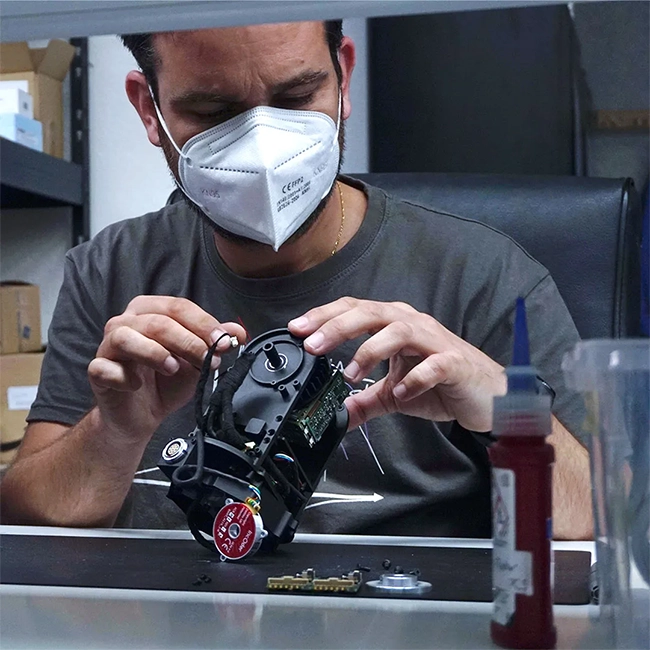
With more than 16 years in the sector, quality has always been a key factor in the company. At Embention we take care of every detail of the development process from the beginning, starting with the design, where we apply aeronautical standards from traditional aviation to our the systems and components for autonomous vehicles.
DO-178C Software Considerations in Airborne Systems and Equipment Certification. Defines the standard used to demonstrate the reliability and airworthiness of on-board avionics software.
DO-254 Design Assurance Guidance for Airborne Electronic Hardware. Establishes a classification system that allows hardware elements to be separated into simple or complex categories, providing systematic design guidelines.
In other words, the use of these standards allows us to guide the design processes to ensure that both software development and on-board hardware is performed with the necessary guarantees for system certification. For this purpose, we are guided by the Design Assurance Level (DAL), which uses a range of 5 levels. We currently have the DAL-B compliance level, and we are working to move to the highest level, DAL-A.
Verification & Validation
Embention has an independent Verification department, which is in charge of both software and hardware verification in the different phases of the design and development process. For this purpose, it has a development environment where requirements, tests, results… and all the necessary tools are included.

Once in production, strict Validation processes (ATP – Acceptance Test Procedure) are followed. These define tests for the different manufacturing stages, including Environmental Stress Screening (ESS) for early detection of failures. The results of these tests are reflected in the ATR (Acceptance Test Report).
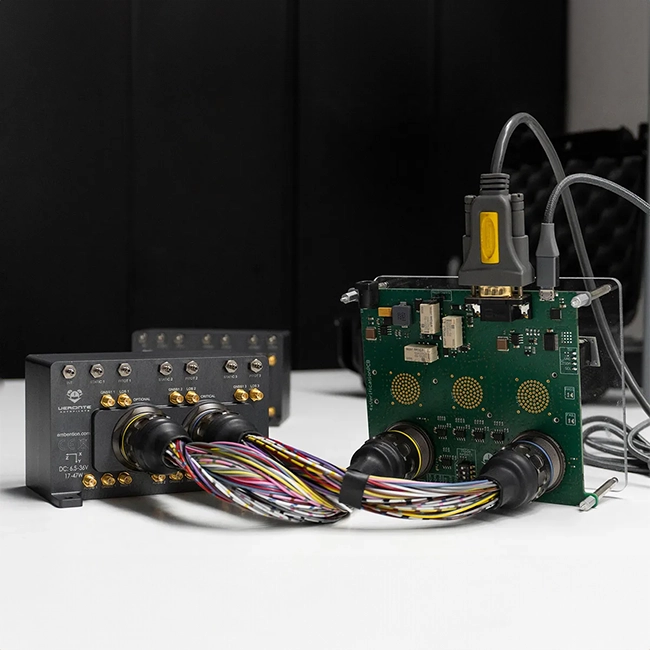
Software verification follows the guidelines set by DO-178C. As a fundamental part of the software development standard, known as the V-Method, System Tests are performed to verify High Level Requirements (HLRs) and Unit Tests to verify Low Level Requirements (LLRs). This set of tests is run with each software release.
Environmental Testing
As part of its design verification, Embention pays special attention to environmental qualification testing. The DO160 and MIL-STD-810 standards, adopted by the FAA and EASA, are the most commonly used. These are test methods, which make it possible to measure the influence of the environment on products. These tests are performed in a controlled environment, in a laboratory, allowing to guarantee the resistance of the products to certain environmental conditions (temperatures, flight altitude, vibrations…).
The main differences between both standards lie in the industry, the adaptation process and the technical consideration for the real operating environment of the equipment.
At Embention we have equipment and laboratories to perform pre-qualification tests for resistance to vibration, temperature, pressure, IP67 and shock.
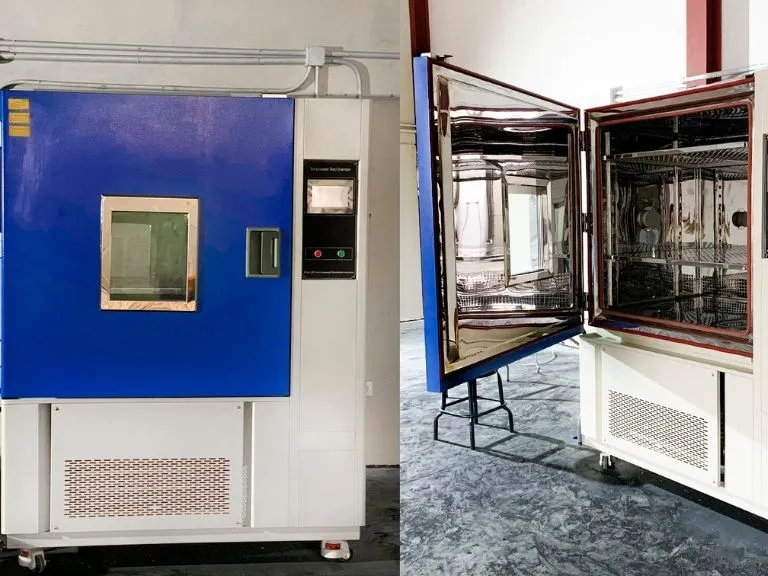
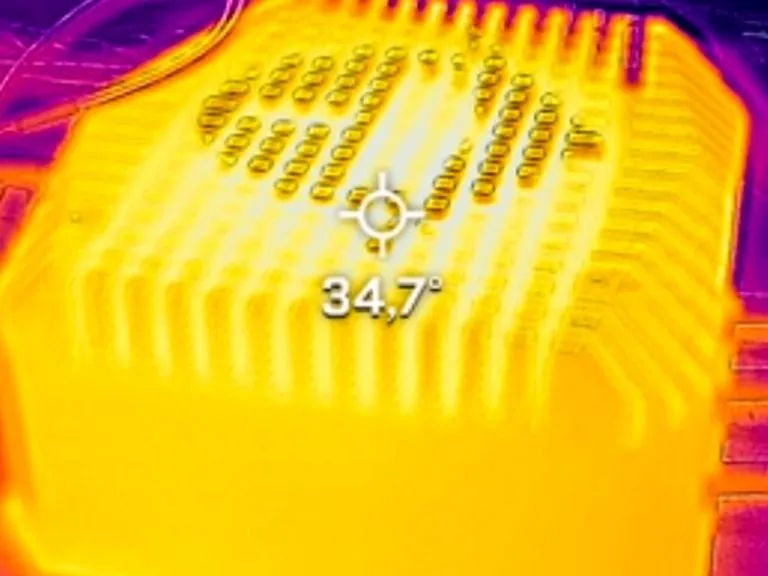
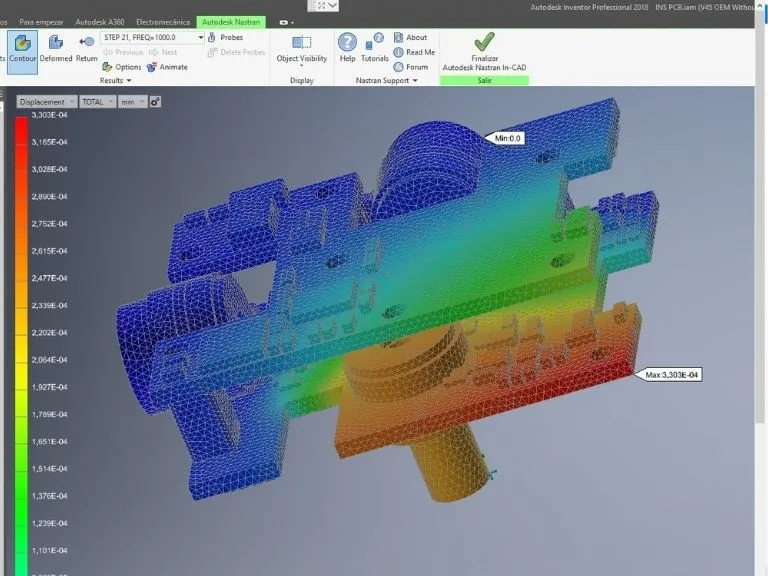
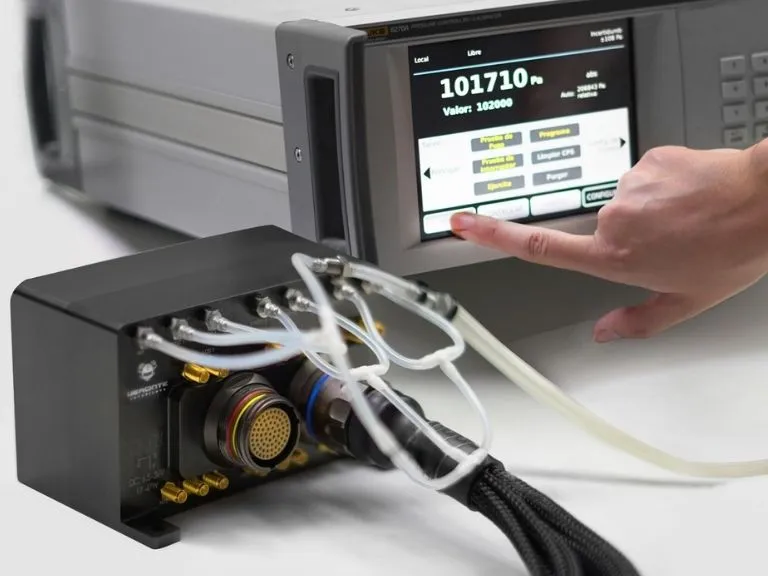
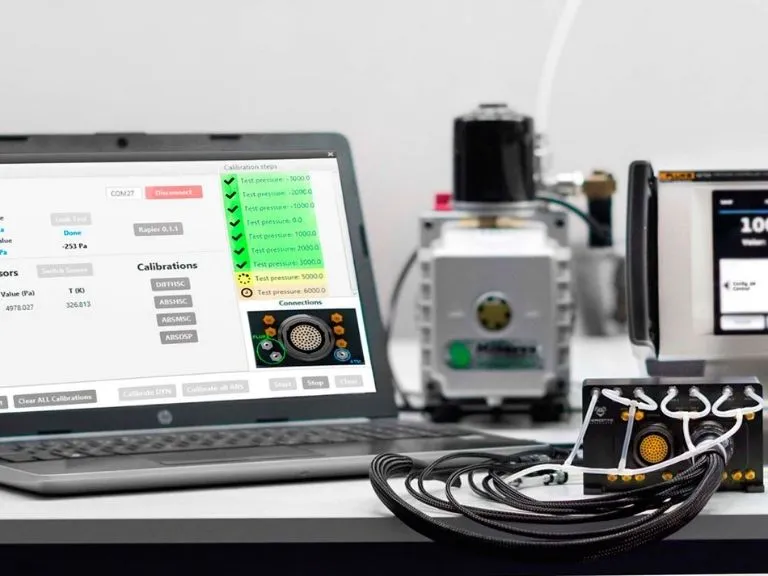
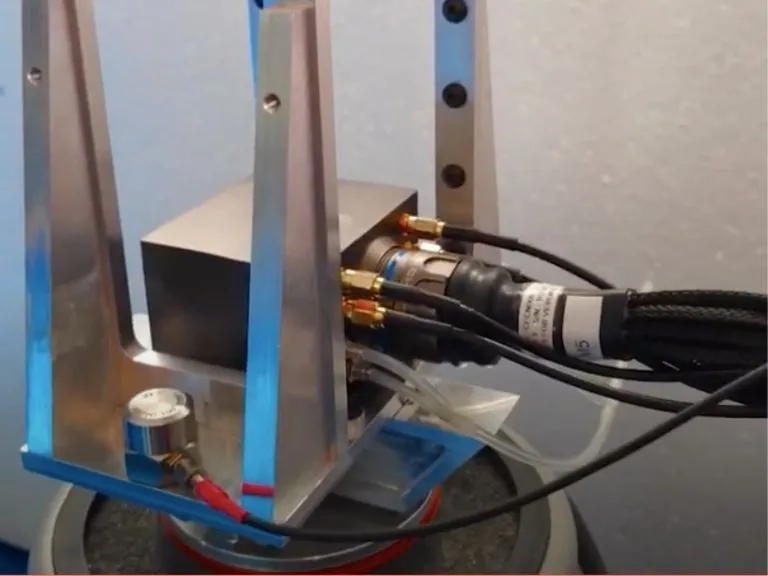
Roadmap
Research, development and innovation is our key to success. We understand that in the VUCA environment in which we live, it is necessary to adapt and predict future needs.
Embention has initiated the process with the European Aviation Safety Agency (EASA) to obtain an ETSOA (European Technical Standard Order Authorization) and to be accredited as APDOA (Alternative Procedure to Design Organization Approval). The company is also in the process of obtaining POA (Production Organization Approval) accreditation from the Spanish Aviation Safety Agency (AESA). In this way, our equipment shall be issued with a EASA-Form 1 certification that accredites that the equipment has been developed and produced under an aeronautical standard, significantly reducing the effort required for the certification of eVTOL and UAV.
